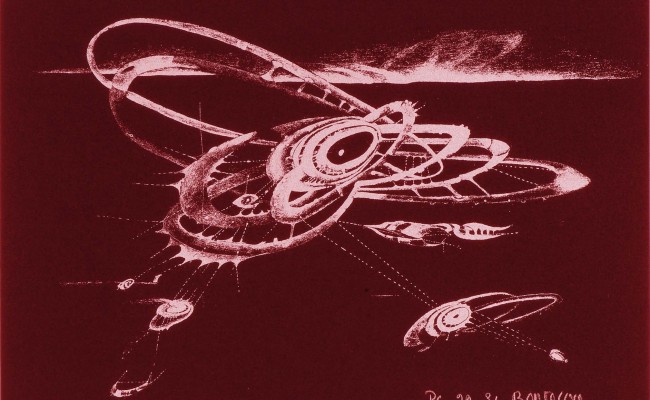When The Lifted Brow announced its prize for experimental nonfiction in late 2014, the fact I wondered what ‘experimental’ meant was probably a sign I am not very experimental. A bad sign. The literary industry so often valorises experimenting with form, genre and voice as something bold and revolutionary that I felt small and conformist for finding the whole field of ‘experimental writing’ intimidating, and not knowing how to enter it.
All writing is experimentation. It is iterative: writers accrete pet interests, structures and styles over time. They read and write, read and write, figuring out what they like and what they want to say. This is what adds up to a ‘voice’ – but it also adds soft, bland layers to a writer’s comfort zone.
In a previous column I wondered whether bad writing is self-protective: whether writers take refuge in clichés to avoid feeling weak and ashamed. Every writing genre was a radical experiment when it was first tried – here is your obligatory reminder that ‘essay’ means ‘to attempt’ – but certain kinds of writing have acquired a comforting patina of familiarity. The bildungsroman. The memoir. The reported feature. The hero’s journey. The agony aunt column. The detective story, whether it is cosy, hardboiled or snowily chilled.
TLB publisher Sam Cooney argues that experimental writing requires a writer to emerge from their comfort zone: ‘If pushed, I would say that you are experimenting in your writing if you are trying to write wholly in a way like you have never written before, and even better, if you are trying to write like no-one else has ever written before either.’
Perhaps experimental writing is a little like sex. It reveals your authentic, vulnerable self, and measures your performance against a benchmark of other people’s prior efforts. Being good at it takes practice, and others will certainly witness your embarrassing early failures. And just as everyone finds different things sexy, what you may consider daringly experimental may seem laughably conventional to others. Or vice versa.
But we elide experimental writing’s intertextual generosity – its sensitivity and openness to context and interpretation – when we treat the experimental as an identifiable literary approach, or even a publishing category. Self-consciously experimental writing need not be a chore to read, but I often feel alienated from it rather than welcomed by it. And it is worthwhile examining elements of resistance and subversion within experimentation. Does it deliberately narrow its meaning in order to protect the writer’s independence from literary groupthink, or to claim space in an inhospitably mainstream literary landscape?
Because the experimental has emerged as a shared literary space as well as an individual approach to writing, certain styles and approaches have become emblematic. Certain key authors, mostly North American, recur as reference points with such frequency that I wonder if Heti, Koestenbaum, Kraus, Nelson, Als and Jamison will soon nestle into the literary canon in the same way as modernists Woolf, Joyce, Faulkner and Beckett.
At the same time, writers from the periphery can use experimentation as a tool to dismantle bourgeois literary standards. In an essay at Kill Your Darlings, Jonno Revanche describes Sydney as an atomised, oppressive city in which experimental writing has flourished as young writers respond to Sydney’s simulacrum of capitalist prosperity with genre-defying works of sardonic nihilism. ‘This is the post alt-lit democracy – weighted together by the sharper niches of the internet as well as an absurdist nostalgic Australiana, a willingness to see how every kind of writing can embody its own lyricism,’ Revanche writes.
In a city like Sydney, where access to literary scenes is strongly delimited by geography, marginality is inextricable from experimentation, and both take on subversive power; Revanche observes that self-styled inner-west proletarians ‘who are attracted to the artifice of it as if it would grant them cultural cachet and reputability, despite all evidence to the contrary, certainly do dominate the conversations.’
Even outside Sydney, writers who feel alienated from local literary scenes are using experimentation to find ‘their people’. For The Orchid Thief author Susan Orlean, the experimental is less a genre or a style than an affective register of enthusiasm. This mode of experimentation favours techniques of immediacy because it seeks ways to communicate the writer’s emotions and experiences to the reader. It pursues a shared subjectivity that makes its chosen topic seem both intrinsically fascinating and intuitively true.
And it seeks this feeling so urgently that it pushes through and between various means of expression. It seizes and plays with genres and styles that are deemed illegitimate because they are emotionally evocative: writing a dream, sketching a conspiracy, sharing gossip, creating a new myth or legend, or venturing into the visceral terrain of horror or erotica.
‘First of all, don’t worry what it’s called,’ says Orlean. ‘Like pornography, you don’t need a definition, anyway, because you will know it when you read it.’
Read the rest of Overland 228
If you enjoyed this piece, buy the issue
Or subscribe and receive
four outstanding issues for a year





